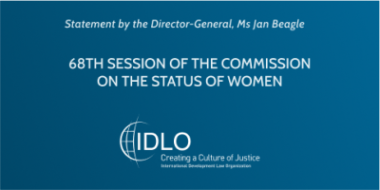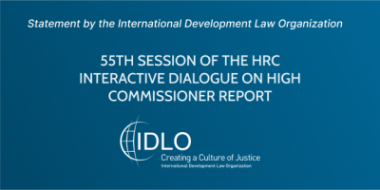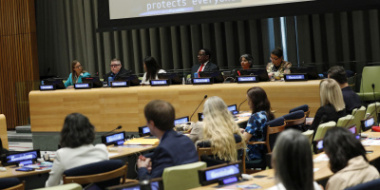Jordan: Women entrepreneurs’ access to justice
While women entrepreneurs in Jordan contribute greatly to the economic development of their countries, they face a range of legal, social and economic challenges as compared to men in setting up and running their businesses and resolving disputes. Lack of awareness among women entrepreneurs about their legal rights can prevent them from accessing legal avenues to help settle their claims, and lack of gender sensitivity among justice actors in the implementation of business and economic laws might lead to unintended biased decisions that adversely affect women-owned businesses.













